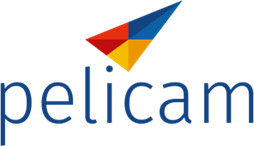
Published on September 17, 2020
Slowly but surely, people are making their way back into the office. What seems clear, though, is that a return to anything like pre-Covid normality is a long, long way off. As more businesses give their staff permanent flexibility there are serious bridges to be crossed when it comes to business transformation and change programmes. I had cause to think about stakeholders in particular. We all know that you have to work with your sponsor, agree an approach, make it happen, monitor progress and revise plans accordingly. But what should we actually be doing with whom? When and how should we be doing it?
If you really want a change programme to be transformational and fully aligned across different parts of the operation and within the programme itself, stakeholder engagement must be rich, regular and extensive. Users, business owners, suppliers, partners and possibly some customers should be actively engaged in writing their business processes and their business rules, explaining how they will manage their data and how technology will assist them. Ultimately, end users need to believe that this change is their change, not an imposed programme.
In my experience, this was already challenging enough; now Covid demands that we do this remotely. Certain tools are just no longer available: dropping in for coffee, walking through the contact centre or finance department, wandering over to check something, putting your head around the door, corridor conversations. These were key tools that I deployed without disrupting day to day operation which are now being reconfigured into a standardised, one-size-fits all format of video calls.
If we are to properly engage, align and get contributions from the stakeholders, business, programme and partners, at all levels and from the very start through design and test of processes, systems and data and on to implementation and adoption, we will need to be smarter.
If I work on the premise that I cannot continually phone people up, nor can I book a back to back stream of meetings, how would I make this work in the Covid-19 world?
We need to provide continual, on demand conversation and easy access for people to get back to us, and to others. Stakeholders will have to want to be engaged. This is not the traditional programme updates and newsletters, this is proper, granular, detail. Anybody that is touched by the programme, internal, external, business or programme is a stakeholder and engagement starts at the initiation of the programme and ends with the adoption by the business. Stakeholders need the context, they need a framework in which to manage the big picture and they need their own detail. They will need to feel empowered to ask, challenge and contribute. Most stakeholders are not going to read through pages of use cases on confluence.
This is not the responsibility of a change manager or business analyst or Programme Director. It has to be a part of a new way of working. As with all things Covid, thinking about these issues raised more questions than it did answers. Some questions are worth asking yourself and your business, even if the answers are not yet apparent: What are we going to do to keep the business, the programme and partners aligned, engaged and contributing? How have you changed the way you talk to stakeholders inside and outside the programme? What extra have you had to produce in terms of documents and explanations and what tools and techniques have you used?
To learn more about engaging your stakeholders, join our free, online workshop. Learn how to identify, manage and overcome the challenges which threaten your project. Sign up here.

